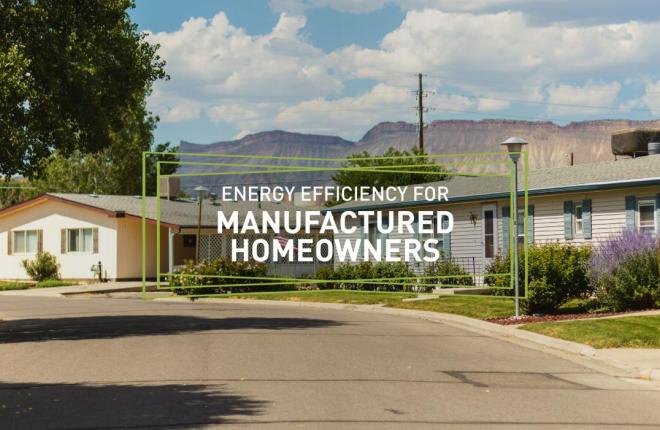
02/17/2021
Electric Trucks May Be the Future for The Rockies
As electric vehicles (EV) are expanding into the mainstream, so too are the choices for new electric models including electric trucks. And while there aren’t any on the road right now, several manufacturers expect to be selling these as early as 2021.
The Colorado Energy Office recently released an EV Plan to show how Colorado can have nearly 1 million EVs on the road by 2030. Colorado’s electric co-ops have implemented new programs to encourage the adoption of EVs in co-op territory, such as publicly available electric charging stations and ride and drive programs.
New Electric Trucks Emerging in 2021
Aside from Tesla's Cybertruck, there are approximately ten other automakers who are vying for the electric truck badge of honor for both aesthetics and performance. Automakers such as Ford, Chevrolet, Lordstown, Rivian, and GMC Hummer are all expected to roll out in 2021, with some reaching availability and delivery in 2022.
Electric Trucks and Mountainous Terrain
And while most of the new electric trucks look like any other internal combustion engine-powered truck, the big question from a lot of truck owners is, “will it have 4-wheel drive, or enough power to tow or climb?” The Hummer EV pickup truck by GMC is scheduled for production in late 2021, with deliveries soon after. It’s predicted to have a towing capacity between 7,500 and 11,000 pounds as well as a payload capacity between 1,500 and 3,500 pounds.
Another EV truck model anticipated in 2021 is from the upstart Rivian. Similar to Tesla, Rivian will sell directly to consumers through a network of service centers and stores. Rivian says it will start delivery to customers as early as June 2021. The R1T is slated to offer up to 754 horsepower, a towing capacity up to 11,000 pounds and can sprint from 0 to 60 m.p.h. in just 3 seconds. With an electric motor at each wheel, the R1T can perform “tank-turns”, as demonstrated in promotional videos. Another Rivian model, the R1S, an SUV built on the same platform is also slated for production in 2021.
According to Edmunds, trucks, and SUVs are the top purchased vehicles in the United States with the Ford F-150 being the number one selling automobile. With this data in hand, we have the potential to grow our EV program with EV trucks and SUVs in the years to come.
Electric Trucks, Power and Towing
But what about power and torque? According to Bollinger Motors, the B1 has a horsepower of 614, a foot-pound-force torque of 668, and a payload capacity of 5,000 pounds.
So, while torque and towing capacity don’t seem to be an issue for the new electric trucks, charging stations on the road that can accommodate trucks hauling trailers could be. Automakers who are able to address the needs of pull-through charging stations will gain an advantage for would-be electric truck owners.
With Tesla, the company controls its own Supercharger network, so it should be able to adjust its stations to accommodate the upcoming Cybertruck, with plans to build pull-through charging stations.
Like Tesla, Rivian plans to build and own its own charger network but, unlike Tesla, will use the Society of Automotive Engineering standardized connector. Like Tesla, the Rivian network will follow along major interstates but unlike Tesla, will also provide chargers at more adventurous destination locations for those parking at trailheads and waterways.
Cleaner Air With Beneficial Electrification
In Tri-State’s family of electric cooperatives and public power districts (PPDs), we've seen a growing interest in EVs. They present a range of benefits, both to consumers and the utility industry at large. We are certain the need for electric trucks will also be in demand.
Beneficial Electrification is a way for consumers to replace fossil fuels with cleaner electricity, resulting in lower costs and lower emissions. Tri-State is adding even more renewable resources and reducing emissions, making electric vehicles power through our member distribution co-ops and PPDs cleaner than ever.
Tri-State is supporting its members’ efforts in the transition to EVs as part of the Responsible Energy Plan. In May 2020, it launched the EV Experience Fleet and support for new charging stations.
One of the cooperative benefits Tri-State offers to our member systems is EV infrastructure funds. Each of our members is eligible for $45,000 to develop and install public charging stations best suited for their local service territory. Learn more about your local co-op initiatives here.
Electrify and Save™
--
About Tri-State
Tri-State is a power supply cooperative, operating on a not-for-profit basis, serving electric distribution cooperatives and public power district member-owners in four states. Together with our members, we deliver reliable, affordable and responsible power to more than a million electricity consumers across nearly 200,000 square miles of the West. Visit www.tristate.coop.
Blog Posts

Winter Comfort Tips: Transform Your Home into an Energy-Efficient Oasis

5 Winter Destinations in Colorado Promoting Energy Efficiency

Warm Weather Tools to Get Your Yard Summer Ready

Energy Saving Maintenance Checklist for Small Businesses

The Benefits of Heat Pumps in Cold Climates

Have an Energy Efficient Holiday Season

How to Create an Energy-Efficient Laundry Room

Energy Efficiency for Manufactured Homeowners

